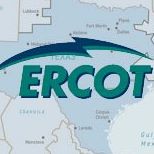Texas lawmakers and experts who study the state’s power grid aren’t thrilled with a proposal by state energy officials aimed at preventing future widespread outages such as the one during the 2021 winter storm.
The Public Utility Commission of Texas last week unveiled a proposal, backed by Chair Peter Lake, that would essentially pay power generators to make sure they have enough reserve electricity to feed the state’s electrical grid in times of extremely high demand. Generators would receive “performance credits” after proving their ability to keep the lights on during those periods — a system that doesn’t exist anywhere else in the world, according to the commission’s consultant.
In the days since, state legislators and energy experts have cast doubts on the proposal, which would cost power customers an additional $460 million yearly, according to the PUC’s estimate. They also questioned the plan’s complexity and the time it would take to implement such a novel system.
“There are huge reliability stakes and huge dollar stakes,” said Alison Silverstein, a former senior adviser at the PUC, which regulates the Electric Reliability Council of Texas, the state’s grid operator. “We need certainty. But there are ways to create certainty without making potentially billion-dollar errors.”
The Texas Legislature last year ordered the commission to overhaul the state’s energy market, which functions mostly off of supply and demand, in the wake of the winter storm. Texas’ electrical grid nearly collapsed as ice and snow blanketed the state. Below-freezing temperatures caused the demand for electricity to surge, triggering widespread power outages that left millions of Texans in the dark without heat for several days. Hundreds of people died as a result.
Power suppliers were allowed to charge sky-high prices for energy as demand spiked during the storm — but frozen equipment meant that they couldn’t meet that demand.
During their first chance to weigh in on potential reforms to the market, lawmakers on a key Senate panel this week made it clear they’re not impressed with the commission’s main proposal.
“This plan is so convoluted, has a long timeline to be put into place, that it’s a set-up for failure for everybody,” state Sen. Donna Campbell, R-New Braunfels, said during a Thursday hearing of the Senate Business and Commerce Committee, adding that the additional costs of the plan will ultimately be paid by power customers.
“The end loser is the end user,” Campbell said.
Senators expressed concerns about making the state’s power customers pay more for an untested system on top of paying off billions of dollars in costs incurred during the storm — costs that energy experts have said Texans will be paying off for decades.
“There was already a wealth transfer that we saw happen [during Uri], probably the largest in the state’s history,” state Sen. Lois Kolkhorst, R-Brenham, said.
I’ve read this story and the Chron story about the same hearing a couple of times, and I’m still not really sure what was on the table here. Part of the reason for this is that PUC Chair Lake rejected the recommendations of the consulting firm they hired, which among other things called for requiring electric providers to buy “reliability credits” from power generators, the idea being that generators would commit in advance to provide enough power during periods of high demand. Given that this kind of robustness was cited as a key problem from last February it at least sounds like a decent starting point. If that’s not the plan, and we don’t care what FERC has to say, then where exactly are we? I don’t know, and it sounds like the Lege doesn’t either. Maybe we should do better about that? Just a thought. TPR has more.

